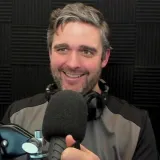In this week’s Psychedelic News Roundup, we detail the rise of psychedelic vapes and what risks or benefits they may hold for the community. Other news includes Maryland’s Psychedelics and Drug Decriminalization task force, a new Phase II clinical trial from Incannex Healthcare, and more.
The Rise of Psychedelic Vapes: A New Era in Psychedelic Consumption

An article from Lucid News explores the burgeoning underground market for psychedelic vapes, signaling a new chapter in the accessibility and consumption of psychoactive substances. The combination of advanced psychedelic chemistry, extraction methods, and the widespread availability of disposable vaporizer technology has led to the creation of portable devices capable of delivering potent psychedelic experiences. These devices, containing substances like DMT, psilocybin, and 2C-B, are becoming increasingly common, reflecting a significant shift in the way individuals engage with psychedelics. The phenomenon has even permeated popular culture, as seen in the 2024 major motion picture “The Beekeeper,” where a character’s DMT vape is mistaken for a nicotine vape.
Psychedelic vapes have the potential to transform the landscape of psychedelic use, making profound experiences more readily available than ever before. However, this trend also raises questions about the quality and safety of the products. Concerns about the presence of solvent fillers, and the ethical responsibility of producing clean products are emerging, highlighting the need for regulation and oversight in this nascent industry.
As the market for psychedelic vapes expands, the implications for public health, legal regulation, and the future of psychedelic therapy are becoming increasingly important to consider. The ease of use and ability to titrate doses make vapes an appealing option for many. Yet, the lack of clinical studies on the effects of vaporized psychedelics calls for cautious optimism. As the community navigates this new terrain, the emphasis on harm reduction and responsible use becomes paramount, underscoring the importance of informed decision-making and the pursuit of knowledge in the evolving world of psychedelic vapes.(1)
Keep Up with Uncensored Psychedelic Trends
Join our newsletter at Psychedelics Uncensored.
We respect and protect your privacy. By subscribing your info will be subject to our privacy policy . Unsubscribe easily at any time
Maryland Explores Psychedelics and Drug Decriminalization Through Proposed Task Forces

As detailed by Marijuana Moment, Maryland’s legislative committees are currently reviewing two significant bills aimed at reforming drug policies, focusing on the legalization of psychedelics and the decriminalization of certain drugs. The House Health and Government Operations Committee recently deliberated on a psychedelics bill introduced by Delegate Pam Guzzone, which proposes the creation of a “Task Force on Responsible Use of Natural Psychedelic Substances” under the Maryland Department of Health. However, an amendment is being considered to place the task force under the Maryland Cannabis Administration’s oversight. This task force would explore the legalization and regulation of substances like psilocybin, DMT, and mescaline, excluding peyote derived from natural sources.
Delegate Guzzone, who describes herself as an unlikely proponent of the bill, emphasized the urgency of establishing the task force to prepare for the anticipated FDA approval of treatments using psychedelic substances, such as those for treatment-resistant PTSD, expected by the end of the year. The proposed amendments to the bill aim to grant the task force greater flexibility in their considerations and reduce the prescriptive nature of the original draft, which included recommendations for the sale, taxation, and regulation of natural psychedelic substances. Guzzone advocates for bringing psychedelics into mainstream medical treatment models, giving options to those suffering from debilitating conditions.
Simultaneously, the House Judiciary Committee examines a separate bill by Delegate Sheila Ruth, which seeks to establish a “Task Force to Study the Use and Possession of De Minimis Quantities of Controlled Dangerous Substances.” This 37-member group would recommend which substances and quantity amounts should be subject to civil citations rather than criminal charges, aiming to explore alternatives to criminal justice intervention. Ruth’s proposal represents a cautious approach to decriminalizing low-level drug possession, ensuring that any legislative action is well-informed and carefully considered. These discussions in Maryland’s legislature reflect a growing interest in reevaluating drug policies to prioritize public health and safety while considering the therapeutic potential of psychedelics.(2)
Colorado Unveils Draft Rules for Natural Medicine Market, Paving the Way for Psychedelic Therapy

On February 16, 2024, Colorado’s Department of Regulatory Agencies (DORA) introduced the initial draft rules for the state’s emerging regulated natural medicine market, a significant step following voters’ approval of the Natural Medicine Health Act in November 2022. These draft rules, presented to the Natural Medicine Advisory Board, focus on establishing qualifications, education requirements, and training programs for facilitators in the psychedelic therapy space. Managed by DORA’s Office of Natural Medicine (ONM), these rules are still preliminary, with further reviews, stakeholder engagement, and public comments anticipated before finalization. The first stakeholder meeting is scheduled for March 8th, beginning a comprehensive review process.
Keep Up with Psychedelic Trends
Get uncensored psychedelic news, events, and updates. Join Psychedelics Uncensored!
We respect and protect your privacy. By subscribing your info will be subject to our privacy policy . Unsubscribe easily at any time
The draft outlines two types of facilitator licenses: “Facilitator” and “Clinical Facilitator,” each with specific educational and training prerequisites. These include Basic Life Support certification, extensive didactic education on natural medicine services, supervised practice, and consultation hours. The draft also introduces educational equivalence pathways for individuals with significant experience facilitating natural medicines, offering accelerated licensure options. Additionally, the draft proposes two secondary licenses: “Distinguished Educator” for experienced practitioners to serve as training program faculty and a “Training License” for students completing their supervised practice, allowing them to provide natural medicine services under consultation.
The proposed rules detail the content and regulation of facilitator training programs, mandating at least 150 hours of didactic education covering a wide range of topics from facilitator best practices to group facilitation and self-care. Training programs seeking “Approved Facilitator Training Program” status must meet stringent requirements, including having a governing body, full-time faculty, and a program director with the appropriate licensure. These draft rules represent a foundational step towards integrating psychedelic healing into Colorado’s healthcare system, emphasizing the state’s commitment to evidence-based, regulated access to psychedelic therapies. As the rulemaking process progresses, DORA invites public input to refine and finalize the regulations, ensuring a responsible and accessible natural medicine market in Colorado.(3)
Denver Seeks Experts for Psychedelics Advisory Group Amid Regulatory Developments

As reported by Westword, Denver, CO., is on the lookout for enthusiasts, healers, and experts in psychedelics to join its newly established Natural Medicine Work Group (NMWG) as the city prepares to navigate the intricacies of a regulated natural medicine market. Following Colorado’s 2022 decision to decriminalize psilocybin mushrooms, DMT, ibogaine, and mescaline and legalize clinical and therapeutic use of psilocybin, the city aims to clarify regulations and licensing for psilocybin healing centers, cultivation, manufacturing, and testing facilities expected to commence between late 2024 and 2025. The Denver Department of Excise & Licenses announced that the NMWG will convene monthly starting in March to deliberate on policy directions and potential licensing laws and rules, reflecting a community-driven approach to shaping the future of natural medicine in Denver.
The initiative to form the NMWG is a response to the statewide Natural Medicine Health Act, or Proposition 122, which marked a significant shift towards medical psilocybin use and broader decriminalization of certain psychedelics for adults over 21. Denver’s proactive stance, including the formation of a psilocybin work group in 2019, underscores the city’s commitment to integrating psychedelics into the healthcare framework responsibly. The NMWG aims to serve as an advisory board to the City Council and Mayor Mike Johnston, providing a platform for diverse voices, including those with lived experiences and subject matter expertise, to influence the development of a well-rounded and structured regulatory environment for natural medicines.
As Colorado navigates the complexities of introducing a new natural medicine model, the formation of the NMWG represents a critical step towards ensuring that a broad spectrum informs regulations of perspectives, including unlicensed operators. The goal is to create a legitimate, transparent, and safe framework for the use of psychedelics in therapeutic settings, distinguishing it from the state’s approach to cannabis regulation. With the Department of Regulatory Agencies and the Department of Revenue playing key roles in the regulatory process, Denver’s efforts to engage the community and stakeholders in the NMWG meetings highlight the city’s dedication to fostering an inclusive and well-regulated natural medicine market.(4)
Incannex Healthcare Reports Breakthrough in Psilocybin Therapy for Generalized Anxiety Disorder

Incannex Healthcare Inc., a biotechnology company in cannabinoid and psychedelic medicine, has announced positive results from its Phase II clinical trial, evaluating psilocybin’s efficacy in treating generalized anxiety disorder (GAD). Conducted in collaboration with Monash University’s Clinical Psychedelic Lab, the trial successfully met its primary endpoint, showcasing a significant reduction in anxiety scores among participants receiving psilocybin-assisted therapy (compared to those undergoing psychotherapy with a placebo). The results, surpassing the company’s initial expectations, indicate a substantial clinical benefit of psilocybin treatment over conventional methods.
The trial revealed that patients treated with psilocybin experienced a notable decrease in HAM-A scores, a standard measure for anxiety, demonstrating a 9.2-point improvement over the placebo group. Furthermore, 44% of the psilocybin group exhibited at least a 50% reduction in anxiety scores, with 27% achieving full disease remission—rates significantly higher than those observed in the placebo group. These findings not only underscore psilocybin’s potential as a powerful treatment option for GAD but also highlight its safety, with no serious adverse events reported throughout the study.
Encouraged by these positive results, Incannex is preparing to advance the development of psilocybin-assisted therapy for GAD through a multi-site Phase IIb trial, PsiGAD2, in the United States and the United Kingdom. The company has also completed the formulation of its psilocybin drug product, PSX-001, and is finalizing preparations for its clinical trial supply. With the submission of an Investigational New Drug application to the U.S. Food and Drug Administration underway, Incannex is poised to further explore psilocybin’s therapeutic benefits, potentially offering a new horizon of treatment for millions affected by generalized anxiety disorder.(5)
These developments underscore the transformative potential of psychedelics in mental health treatment and the critical need for responsible regulation and harm reduction.
Sources

1. Walker, D. (2024, February 28). Behold the Ascendant Psychedelic Vape – Lucid News. https://www.lucid.news/behold-the-ascendant-psychedelic-vape/
2. Jaeger, K. (2024, February 22). Maryland Committees Take Up Psychedelics And Drug Decriminalization Task Force Bills. Marijuana Moment. https://www.marijuanamoment.net/maryland-committees-take-up-psychedelics-and-drug-decriminalization-task-force-bills/
3. Natural Medicine Health Act – DORA Implementation Timeframe | Division of Professions and Occupations. (n.d.). Dpo.colorado.gov. https://dpo.colorado.gov/NaturalMedicine/Implementation
4. Perez, C. (n.d.). Calling All Mushroom Lovers: Denver Needs Experts for Psychedelics Advisory Group. Westword. Retrieved February 29, 2024, from https://www.westword.com/marijuana/denver-needs-experts-for-a-psychedelics-advisory-group-19671483
5. incannex@admin. (2021, September 6). PSI-GAD | Incannex. https://www.incannex.com/clinical-trail/psi-gad/
This material is not intended as a replacement or substitute for any legal or medical advice. Always consult a medical professional about your health needs. Psychedelics are widely illegal in the United States, and readers should always be informed about local, state, and federal regulations regarding psychedelics or other drugs.

 David Connell
David Connell





 Ross Dillon
Ross Dillon 
